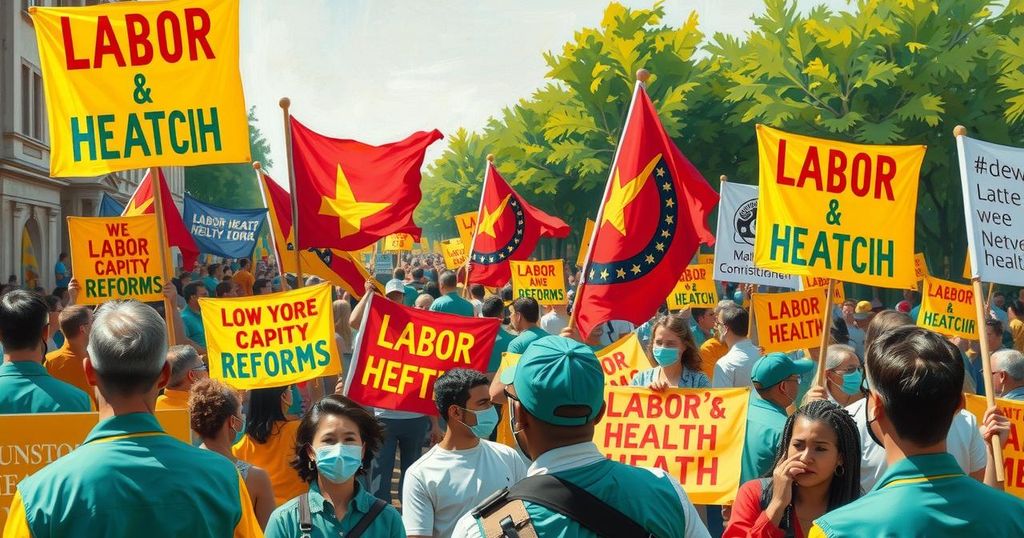President Gustavo Petro of Colombia called for a special election to push labor and health reforms, criticizing the obstruction from centrist and right-wing politicians. He emphasized public participation in demanding change, amid concerns about voter turnout and the efficacy of his proposed reforms. Political analysts suggest the special election could energize support but face hurdles in implementation due to legislative opposition.
In a rally held in Bogota, Colombia, President Gustavo Petro called on supporters to resist centrist and right-wing politicians who are obstructing necessary labor and health reforms. He criticized members of Congress, accusing them of being driven by greed rather than serving the people’s interests. As Colombia prepares for upcoming congressional and presidential elections, Petro emphasized the sacrifices made by the populace under what he described as the rule of ‘monarchs and tyrants.’
President Petro, who leads as Colombia’s first leftist leader, faces challenges in passing legislation due to his Historical Pact movement holding only a fifth of Senate seats. To support protests advocating for a special election, which must receive Senate approval, he allowed national government employees a day off to participate actively. Government agencies backed the protests via social media and television advertising, leading to significant turnout at the demonstrations.
At the protest in Bolivar Square, Petro urged voters to hold accountable members of Congress whom he claimed favored large corporations over the public. The proposed special election, referred to as a popular consultation in Colombia, requires participation from one-third of registered voters—approximately 13 million individuals—for its results to be enacted.
Political analysts note the difficulty Petro’s administration will face in drawing sufficient voter turnout. Although Petro won 11.2 million votes in the 2022 election, experts suggest the special election could stimulate his supporters ahead of the congressional elections in March. Critics argue the government is deflecting responsibility for its inability to build consensus in Congress by framing these reforms as a reason to extend its term in office.
During his presidential campaign, Petro pledged to overhaul Colombia’s health system, intending to replace private insurance companies with a government agency to manage social security funds. He has criticized these firms for misusing funds but has encountered resistance from legislators concerned about excessive government control. Petro’s labor reform proposals aim to improve wages for night workers and reduce the prevalence of temporary contracts; however, they were dismissed in a critical committee vote due to fears of increased unemployment.
More than 55% of the Colombian workforce operates within the informal economy, lacking formal labor contracts. Critics of Petro’s initiatives argue that his proposals do not sufficiently incentivize companies to engage these informal workers, potentially undermining efforts to formalize employment.
In summary, President Gustavo Petro is advocating for a special election to energize support for his labor and health reforms, amidst significant opposition from centrist and right-wing politicians. While the proposed election offers a platform to mobilize the electorate, hurdles remain regarding voter turnout and legislative approval. Petro’s proposed reforms face criticism for potentially exacerbating unemployment and failing to adequately address the informal workforce’s needs. The success of these initiatives will, therefore, depend on effective strategies to garner public support and legislative cooperation.
Original Source: www.washingtonpost.com




